Saffron is a highly prized and aromatic spice derived from the stigma (the female reproductive part) of the Crocus sativus flower. Known for its vibrant color, distinctive flavor, and strong aroma, saffron has been cultivated for centuries and is used in various culinary and medicinal applications.
The best saffron producer drawers
The quality of saffron can vary based on factors such as climate, soil conditions, and traditional cultivation methods. Here are some of the best-known producers of saffron:
- Iran: Iran is the largest producer of saffron globally. Iranian saffron is renowned for its high quality, vivid color, and strong flavor. Different regions within Iran, such as Khorasan, produce saffron with distinct characteristics.
- India: India is a significant producer of saffron, particularly in the region of Jammu and Kashmir. Indian saffron, often referred to as “Kashmiri Saffron,” is known for its deep red color and strong aroma.
- Spain: Spain is another major producer of saffron, primarily from the La Mancha region. Spanish saffron is valued for its flavor and is often used in dishes like paella.
- Greece: Greek saffron, produced mainly in the region of Kozani, is considered high-quality. It is known for its rich color and is often used in both traditional and modern Greek cuisine.
- Morocco: Morocco is known for producing saffron of good quality, and the Taliouine region is particularly famous for its saffron cultivation.
When looking for saffron, it’s essential to consider factors such as the specific region of production, the saffron grade, and any certifications provided by the supplier. Additionally, saffron produced by small-scale farmers or cooperatives dedicated to sustainable and traditional cultivation practices may offer unique and high-quality options.
Iran: the leading producer of saffron in the world
As of my last knowledge update in January 2022, Iran is indeed recognized as the leading producer of saffron in the world. The country has a long history of saffron cultivation, and its saffron is highly esteemed for its quality, color, and flavor. The primary region for saffron production in Iran is Khorasan, which includes provinces such as South Khorasan and Razavi Khorasan.
Key factors contributing to Iran’s prominence as a saffron producer include:
- Climate: The climate in certain regions of Iran, particularly Khorasan, is well-suited for saffron cultivation. The combination of hot, dry summers and cool autumns provides optimal conditions for the saffron crocus to thrive.
- Traditional Cultivation Methods: Iran has a rich tradition of saffron cultivation, and many farmers still use traditional methods for planting, harvesting, and processing saffron. Hand-harvesting the delicate saffron threads during the blooming season is a labor-intensive but crucial practice that contributes to the quality of the saffron.
- High-Quality Varieties: Iranian saffron is known for its high crocin content, which imparts a deep red color to the threads. Crocin is one of the key compounds responsible for saffron’s color, flavor, and medicinal properties.
- Culinary Significance: Iranian saffron is widely used in traditional Persian cuisine, as well as in various international dishes. It is a key ingredient in dishes like Persian rice pilaf (saffron rice) and is used to add color and flavor to a range of savory and sweet recipes.
- Global Exporter: Iran exports a significant portion of its saffron to international markets. Iranian saffron is sought after worldwide, and the country plays a major role in meeting the global demand for this valuable spice.
It’s important to note that conditions in the saffron market can change, and new developments may have occurred since my last update. Always check the latest information and industry reports for the most current insights into saffron production.
Iranian saffron: the best quality and taste
Iranian saffron is indeed widely recognized for its exceptional quality, vibrant color, and rich flavor, making it one of the most sought-after varieties in the world. Several factors contribute to the reputation of Iranian saffron:
- Climate and Geography: The climate and geography of Iran, particularly in the Khorasan region, where a significant portion of saffron is cultivated, create optimal conditions for saffron production. The sunny days and cool nights contribute to the development of saffron with intense color and flavor.
- Traditional Cultivation Methods: Iranian saffron is often cultivated using traditional methods that have been passed down through generations. These methods include hand-harvesting the delicate saffron threads during the blooming season, requiring careful attention and expertise.
- High Crocin Content: Crocin is the compound responsible for saffron’s color. Iranian saffron is known for having a high crocin content, resulting in the characteristic deep red color that is indicative of premium quality saffron.
- Strong Aroma: Iranian saffron is praised for its distinct and strong aroma, which adds a unique fragrance to dishes. The saffron threads release their aromatic compounds when infused in liquids, contributing to the overall sensory experience.
- Purity and Authenticity: Iranian saffron is often considered pure and authentic, with minimal risk of adulteration. Reputable Iranian saffron suppliers take measures to maintain the integrity of their product, providing consumers with a reliable and genuine spice.
When purchasing Iranian saffron, it’s important to source it from reputable suppliers who can provide information about the saffron grade, origin, and any relevant certifications. Additionally, consider factors such as packaging, as saffron should be stored in airtight, light-resistant containers to preserve its quality.
Ultimately, the choice of saffron depends on personal preferences and the specific culinary or medicinal application. Iranian saffron, with its high-quality attributes, is often favored by chefs, home cooks, and aficionados looking for an exceptional saffron experience.
If you are looking to supply saffron from Iran and want to attract customers with special discounts on bulk purchases, you can create an advertising message that emphasizes the quality, authenticity and affordability of your saffron. Here is an example:
Saffron for Children: A Review of Potential Benefits and Considerations
While saffron is generally considered safe for consumption in moderate amounts, it’s crucial to exercise caution, especially when introducing any new ingredient into a child’s diet. Saffron has certain properties that may be beneficial for children when used appropriately. Here are some potential properties of saffron and considerations for children:
- Antioxidant Benefits:
– Saffron contains antioxidants that may help neutralize free radicals, supporting overall health. Antioxidants play a role in protecting cells from oxidative stress.
- Mood Regulation:
– Some studies suggest that saffron may have mood-regulating effects and could potentially contribute to a positive emotional state. However, more research is needed in this area.
- Anti-Inflammatory Properties:
– Compounds in saffron, such as crocetin, have demonstrated anti-inflammatory properties. This could be relevant for children dealing with inflammation-related conditions.
- Gastrointestinal Health:
– Saffron has been traditionally used to aid digestion. It may have mild gastrointestinal benefits, but individual responses can vary.
- Respiratory Health:
– In some traditional practices, saffron has been used to address respiratory issues. However, scientific evidence in this regard is limited, and professional medical advice should be sought for respiratory concerns.
- Immune Support:
– Saffron’s antioxidant properties may contribute to supporting the immune system. A healthy immune system is crucial for children’s overall well-being.
- Nutrient Content:
– Saffron contains trace amounts of certain nutrients, including vitamin C and various B vitamins. While these are present in small quantities, they can contribute to a child’s overall nutrient intake.
Considerations and Cautions:
– Dosage: Keep the dosage minimal and age-appropriate. Consult with a pediatrician before introducing saffron to a child’s diet, especially in medicinal or supplement form.
– Allergies: Some individuals may be allergic to saffron. Watch for any allergic reactions, and discontinue use if adverse effects occur.
– Purity: Ensure that the saffron used is of high quality and free from contaminants. Pure saffron threads are generally preferred over saffron supplements or powders.
– Preparation: If using saffron in cooking, ensure it is well-dissolved in liquids to avoid any choking hazards. Avoid using excessive amounts.
– Medical Conditions: If a child has any pre-existing medical conditions or is taking medications, consult with a healthcare professional before incorporating saffron into their diet.
It’s crucial to approach the use of saffron for children with caution, and any decision to include it in their diet should be made in consultation with a healthcare provider or pediatrician. Saffron should not be used as a substitute for a balanced and nutritious diet, and its potential benefits should be considered within the context of an overall healthy lifestyle for children.
Saffron’s Potential in Cancer Prevention: Exploring Antioxidant and Anti-Inflammatory Pathways
While saffron has been the subject of research exploring its potential health benefits, including anticancer properties, it’s important to note that the evidence is still in the early stages, and more research is needed. Saffron contains several compounds that have shown promise in laboratory studies for their potential anticancer effects. Here are some properties of saffron that have been investigated in relation to cancer prevention:
- Antioxidant Activity:
– Saffron contains antioxidants, including crocin, crocetin, and safranal. Antioxidants help neutralize free radicals, which are reactive molecules that can cause cellular damage. This antioxidative property may contribute to protecting cells from oxidative stress, a factor implicated in cancer development.
- Anti-Inflammatory Effects:
– Compounds found in saffron, such as crocetin, have demonstrated anti-inflammatory properties. Chronic inflammation is associated with an increased risk of cancer, and substances that can modulate inflammation may have potential in cancer prevention.
- Apoptosis Induction:
– Some studies suggest that saffron may induce apoptosis, which is programmed cell death. This process is essential for maintaining healthy cell turnover and preventing the growth of abnormal or cancerous cells.
- Inhibition of Cancer Cell Proliferation:
– Laboratory studies have indicated that saffron extracts may inhibit the proliferation of cancer cells, potentially slowing down the growth of tumors.
- Angiogenesis Inhibition:
– Angiogenesis is the process by which new blood vessels form, supplying nutrients to tumors. Saffron compounds have been investigated for their potential to inhibit angiogenesis, a mechanism that could hinder the progression of cancer.
- DNA Repair Enhancement:
– Some research suggests that saffron may enhance DNA repair mechanisms, which are crucial for maintaining the integrity of genetic material and preventing the development of mutations that could lead to cancer.
It’s important to emphasize that while these properties are promising, the existing evidence is mainly based on laboratory studies and animal research. Clinical trials on humans are limited, and more research is needed to determine the specific mechanisms, effective doses, and overall efficacy of saffron in cancer prevention.
Additionally, it’s crucial to approach cancer prevention with a holistic perspective, incorporating a healthy lifestyle, balanced nutrition, and regular medical check-ups. If considering saffron supplementation or its inclusion in the diet for health purposes, it’s advisable to consult with a healthcare professional, especially for individuals with existing health conditions or those undergoing cancer treatment.
Exclusive offer: premium Iranian saffron at unique prices!
Open the richness of Iranian saffron with our special bulk purchase discount!
Dear customers
Are you looking for the best saffron to enhance your culinary creations? Do not look ahead! We are very happy to offer you an exceptional opportunity to experience the unique quality of Iranian saffron with special discounts on bulk purchases.
Why choose Iranian saffron?
🔶 Pure authenticity: Our saffron is sourced directly from the beautiful farms of Iran, which is known for producing some of the most exquisite saffron in the world. You can trust the authenticity and purity of our product.
🌺 Vibrant color and fragrance: Immerse your senses in the vibrant colors and charming fragrance of our premium Iranian saffron. Each strand is carefully harvested to retain its rich color and distinctive aroma.
💰 Affordable bulk purchases: We understand the value of your investment. Enjoy significant savings with our special discounts on bulk purchases. Whether for your culinary business or personal use, our pricing is tailored to your needs.
🌐 Global Shipping: No matter where you are, experience the luxury of Iranian saffron at your doorstep. We provide reliable and efficient global shipping services.
How to use special discounts:
- 🛒 Browse our selection of premium Iranian saffron.
- Choose the amount that suits your needs.
- 💰 Enjoy exclusive bulk purchase discounts at checkout.
Do not miss this opportunity to beautify your food with the magic of Iranian saffron. Elevate your culinary journey with us!
📞 For questions and personal guidance, contact our dedicated customer service team.

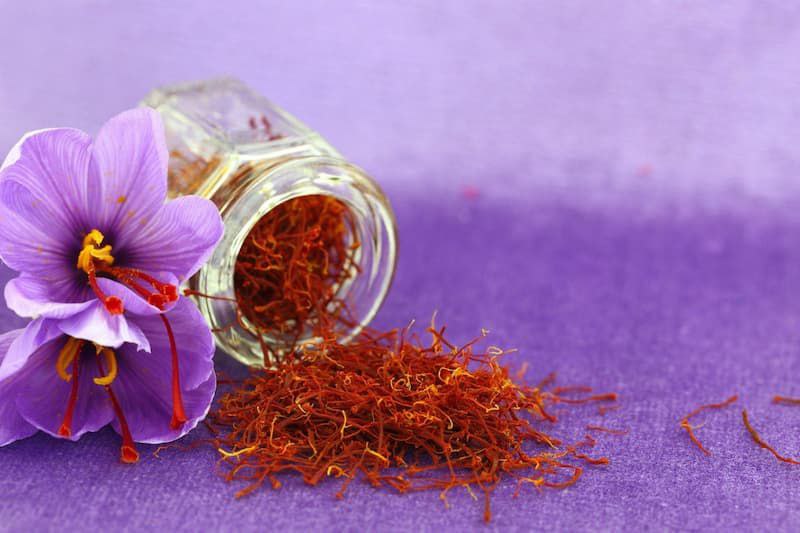
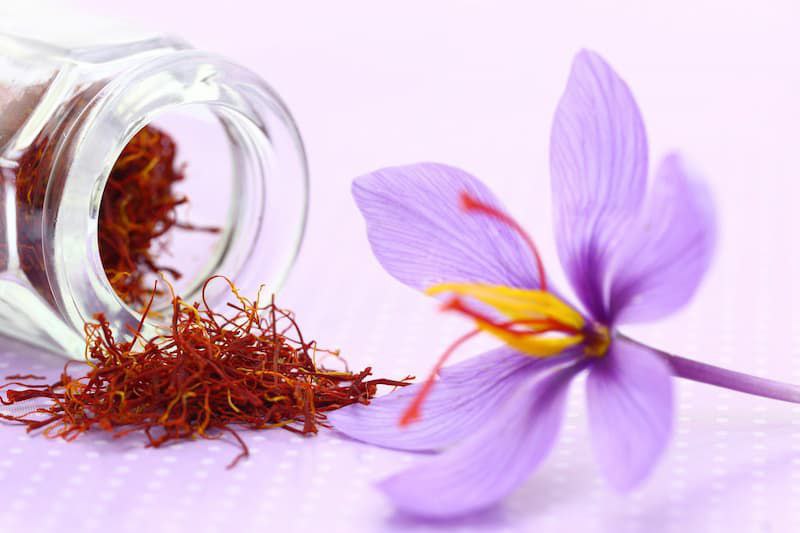
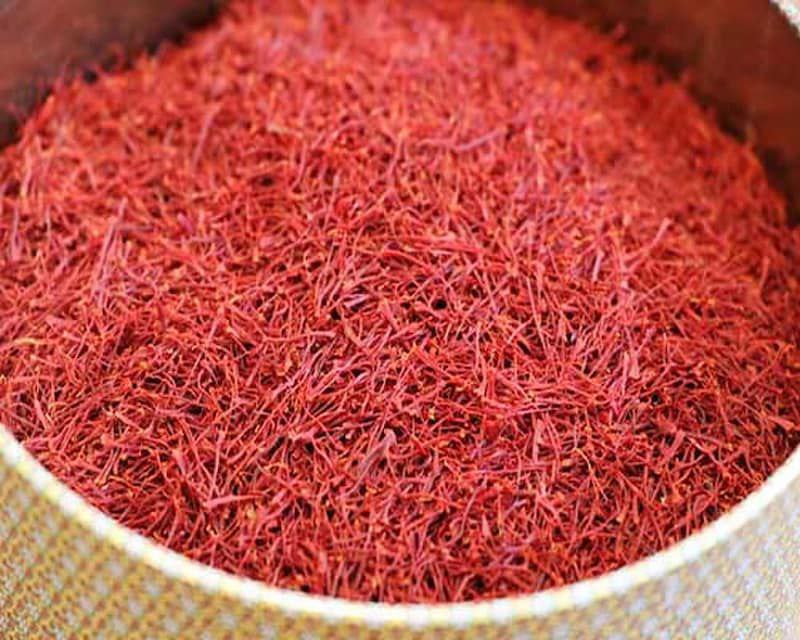
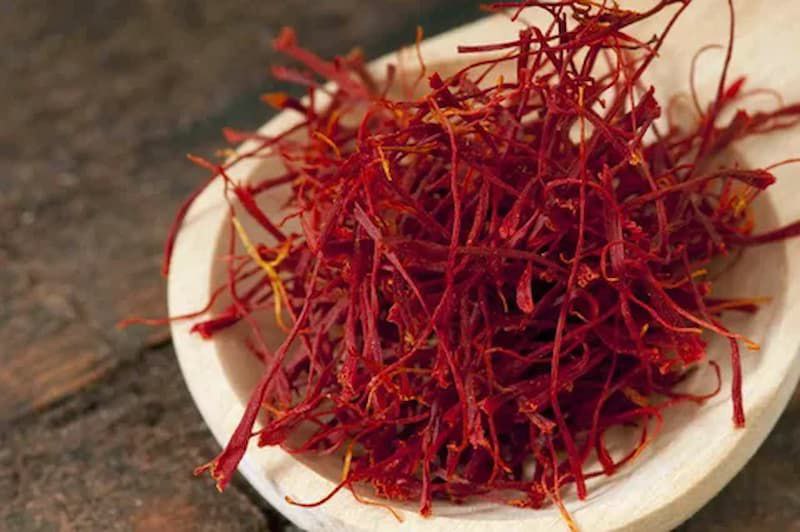
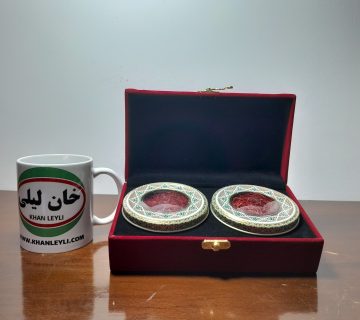
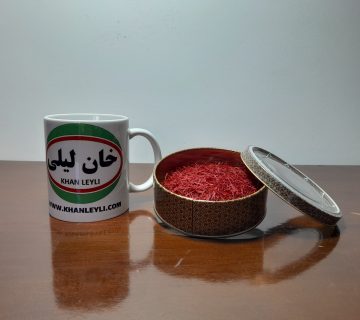
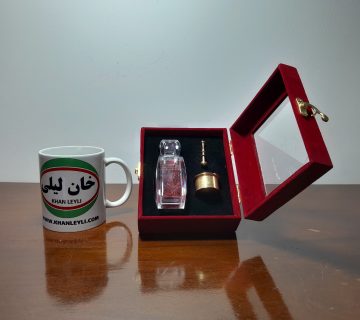
No comment